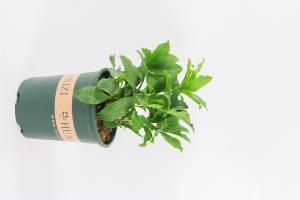Is Pool Water Bad for Plants?
Many people wonder whether it is safe to use pool water to water their plants. After all, pool water contains chemicals such as chlorine and pH adjusters that are designed to keep the water clean and clear. So, is pool water bad for plants? The answer is not a simple yes or no, as it depends on several factors.
Chlorine and Plants
Chlorine is added to pool water to kill bacteria and other harmful microorganisms, and it can also be toxic to plants in large amounts. If you pour pool water directly onto your plants, you may notice burning or yellowing of the leaves, or even the death of the entire plant.
However, if you let the pool water sit for a few days before using it, the chlorine will naturally dissipate into the air, making it safe for your plants. Alternatively, you can also use a dechlorination product to remove chlorine from the water before using it to water your plants.
pH Adjusters and Plants
Pool water often needs to have its pH adjusted to maintain a balance between acidic and alkaline levels. When the pH is too high or too low, it can have negative effects on the water's clarity, and may even damage the pool equipment over time. However, when it comes to plants, pH levels are also important.
Most plants prefer a slightly acidic soil pH, between 6.0 and 6.5. If you use pool water that has a pH level that is too high or too low, it can affect the pH of the soil and potentially harm your plants. It is important to test the pH of your pool water before using it on your plants and adjust it accordingly with soil amendments or other products.
Other Factors to Consider
In addition to chlorine and pH levels, there are several other factors to consider before using pool water on your plants. For example, if your pool has been treated with algaecides or other chemicals, those can also be harmful to plants. Additionally, hard water or water with high levels of salt or minerals can have negative effects on plants as well.
If you are considering using pool water on your plants, it is important to take these factors into account and do some research to determine whether the water is safe for your specific plants. In general, it is best to avoid using pool water on edible plants or those that are particularly sensitive to chemicals.
Conclusion
In conclusion, pool water can be used to water plants if certain precautions are taken. Chlorine and pH levels must be carefully monitored and adjusted, while other chemicals and minerals must also be taken into consideration. With a little bit of effort and research, you can safely use your pool water to keep your plants healthy and hydrated!

 how many times do yo...
how many times do yo... how many planted tre...
how many planted tre... how many pine trees ...
how many pine trees ... how many pecan trees...
how many pecan trees... how many plants comp...
how many plants comp... how many plants can ...
how many plants can ... how many plants and ...
how many plants and ... how many pepper plan...
how many pepper plan...































